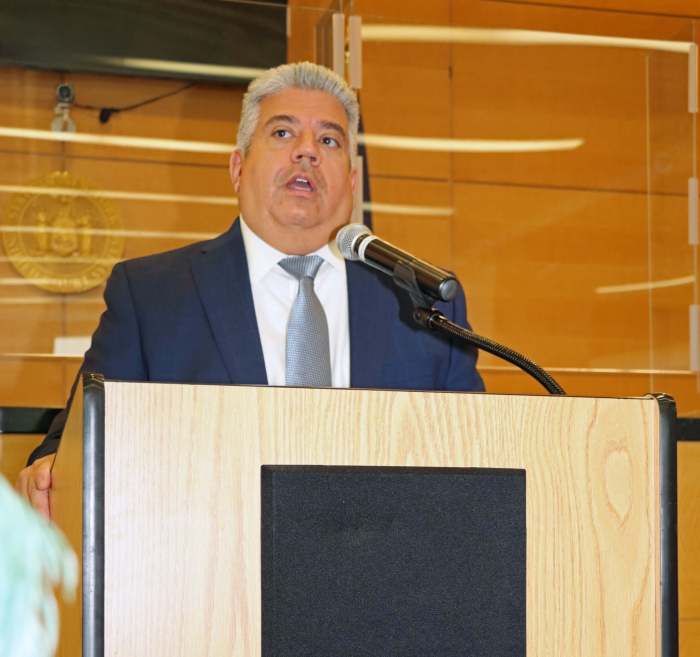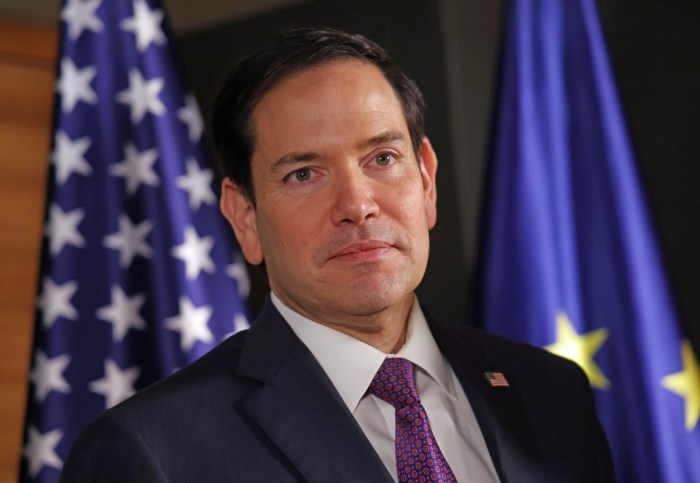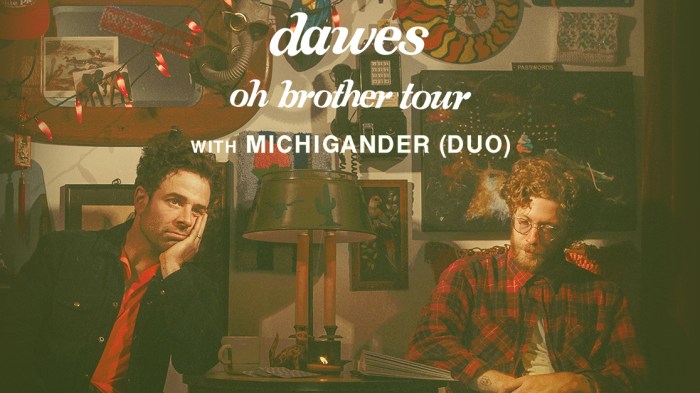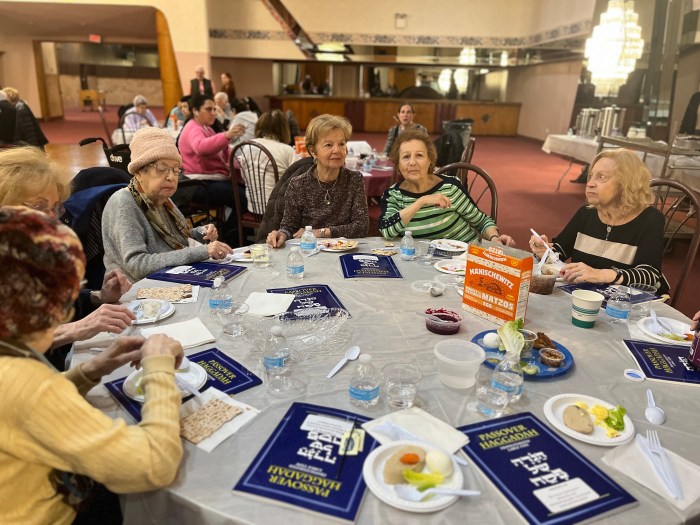Fifty years ago when a Bronx community first elected prime ministers to advance their message using rap music, a DJ named Kool Herc combined sound system technology to talk over instrumental recordings.
The new, imported, unique collaboration spawned the birth of Hip-hop.
Since its debut, young wizards in every borough has added their own spin on the new birth which captivated the entire nation before capturing an international audience.
Brooklyn’s Jay-Z and Biggie Smalls emerged power brokers on the east coast, while on the opposite end Tupac Shakur, Ice Cube and others were considered mere Boyz in the Hood.
Regarded as spokespersons for an underrepresented demographic the principals voiced messages an entire generation related using their unique talent to revolutionize a record industry which profited with little accountability to the creators.
When pioneering female teenagers Sha Rock, Roxanne Shante, Lil Kim, Missy Elliot, MC Lyte and others united with the B-Boys, together they formed a gender-friendly bond to promoted themselves, distributed their own products and in the process emerged kings and queens of the genre.
A New Jersey female dubbed herself Queen Latifah; Jay-Z garnered a kingdom outside his Brooklyn Marcy Houses to rule an empire that continues to surpass expectations; Ice Cube cooled the intentions of gangstas by dropping rhymes that rationalized antagonisms against police, Tupac Shakur collaborated with Janet Jackson to give Poetic Justice to the movie industry that amplifued versions recorded by the Sugarhill Hill Gang, Run DMC, Chuck D, Public Enemy, 50 Cent, KRS-One, LL Cool J., Doug E. Fresh, Slick Rick, Kurtis Blow, Biz Markie, Will Smith, Heavy D, DMX, Ice T, Sean Combs, Melle Mel, Grandmaster Flash and others.
Soon afterwards females crossed the male dominated genre to introduce Mary J. Blige, Salt N Pepa, MC Lyte, Lauryn Hill, Miss Melodie, Nicky Minaj, Cardi B., and others who imagined an alternative to popular radio playlists.
They made their individual, unique imprint and emerged royalty among monarchs of the industry.
On a single titled “Juicy” immigrant Christopher Wallace aka The Notorious B.I.G. confessed “it was all a dream.”
And in 2020 urban trailblazing Congressman Hakeem Jeffries recited those lyrics on the senate floor of the House of Representatives to convince colleagues that Donald Trump’s actions merited impeachment.
After the congressman stated his case against the Republican rival, he ended the 1994 recitation referencing lyrics from the hit single “if you don’t know, now you know.”
It was no coincidence that Biggie grew up in Clinton Hills which is the legislator’s 8th district.
The honor punctuated street-cred already bestowed to the legendary icon and monarch whose rise to coronation proved secondary to a primary affinity in expressing the unique verbal musicality.
Rappers claim it was passion for attracting new audiences that motivated their constant effort. Some contend they were driven by an urgency for change.
Perhaps the latter compelled non-rappers to establish themselves collaborators to the form. Nation of Islam’s Minister Conrad Muhammad aligned with youths to declare himself the hip hop minister.
Wikipedia states: “In the 1990s, he started an organization called A Movement for C.H.H.A.N.G.E. (“Conscious Hip Hop Activism Necessary for Global Empowerment”) to advocate for “conscious hip hop activism,” voter registration and education, community organizing, and social empowerment for Black youth.”
“He criticized hip-hop lyrics that portrayed American Black communities as degenerate. He also criticized the businessmen who supported that approach.”
The minister was 25 years-old and benefactor to Malcolm X’s Mosque number 7 in Harlem when he committed to the progressive ministry.
He reached out to gangs, related to inner city issues, opposed gangsterism by crusading against gangster lyrics and held regular rallies in Harlem to further his message.
“He believed that in seeking to emulate the lyrics in gangsta rap, young Black Americans became victims of mass incarceration, violence, sexual exploitation, and drug crime,” the online engine added.
In addition, according to the portal, the hip-hop minister also won acclaim when he invited rappers A Tribe Called Quest, Chuck D, with Public Enemy, Kool Herc, Afrika Bambaata, model Bethann Hardison, Bad Boy Records president Sean Combs and his label’s hot commodity Biggy Smalls and actor Malik Yoba to arrange a truce between Wreckx-N-Effect and A Tribe Called Quest.
Allegedly, the vociferous minister also counseled Combs during his feud with rival Suge Knight.
Hip-hop also contributed to the upward spiral of Eric Adams, the number one citizen of New York City who assigned himself the title “hip-hop mayor.” The former borough president of Brooklyn’s Kings County said he grew up listening to trailblazers who helped shape his understanding of the political landscape.
This month a plethora of events are on display to spotlight the 50-year milestone reached in advancing the genre that renamed 1520 Sedgwick Avenue Hip-Hop Blvd.
Hip-hop also associates branding of a multitude of self-imposed titles including — hip hop preachers, hip hop teachers, artists, fashionistas and other forward-thinking monikers.
The Brooklyn Public Library continues to issue Jay-Z commemorative membership cards. His lyrics decorate the façade of the building which features an exhibition of the rapper’s achievements as a businessman who invested in the Brooklyn Nets, the Barclays Center, and significantly, the mogul’s elevation from a record label signee to purchaser of the label he now owns.
Naughty By Nature said it best in 1993 after Queen Latifah mentored the East Orange, New Jersey group signed to Tommy Boy Records.
They “waved their hands…acting like they just don’t care” to chorus lyrics to a track titled “Hip-hop Hooray.”
Onward and upward to the beat.
Catch You On The Inside!

























